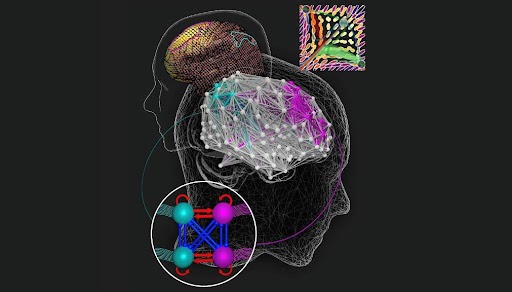Being intelligent does not imply making decisions quicker, according to a study by Charité – Universitätsmedizin Berlin with the collaboration of the UPF-CBC
Being intelligent does not imply making decisions quicker, according to a study by Charité – Universitätsmedizin Berlin with the collaboration of the UPF-CBC
The study by Charité – Universitätsmedizin Berlin with the collaboration of Gustavo Deco, a researcher at the UPF Center for Brain and Cognition (CBC), poses in doubt that quick decision-making is linked to higher levels of intelligence. Their findings were recently published in the journal Nature Communications.

Do intelligent people think quicker than others when solving problems? The results of a new neuroscientific study question this long-held assumption in research into intelligence. The study was conducted by researchers from the Human Brain Project at Charité – Universitätsmedizin Berlin, involving Gustavo Deco, a researcher at the UPF Center for Brain and Cognition (CBC). The results have recently been published in the article “Learning how network structure shapes decision-making for bio-inspired computing” in the journal Nature Communications.
The main goal of the study was not to establish the how quickly we think but to understand how biological networks determine decision-making, so as to be able to develop tools inspired by our brain’s dynamics and robotic applications. The definition of models that describe brain dynamics for intelligent decision-making is an approach that may contribute to the creation of intelligent applications. “We think that biologically more realistic models can outperform classic artificial intelligence in the future”, assures Petra Ritter, principal investigator of the study at the Charité.
Petra Ritter (Charité – Universitätsmedizin Berlin): “if the brain has more time and considers more evidence, it invests more in problem solving and finds better solutions”
The study results reveal that people with higher scores for fluid intelligence (FI), the ability to take difficult decisions in new situations, took longer to solve more challenging tasks compared to people with lower FI. They were only faster when responding to simple questions. “Intuitively this is hardly surprising: if the brain has more time and considers more evidence, it invests more in problem solving and finds better solutions. Therefore, the study provides new evidence that challenges a common notion concerning human intelligence”.
Gustavo Deco (CBC-UPF): “this research represents a radical change from studies conducted to date in which brain dynamics were modelled (…) in separate areas. Here there is a paradigm shift: that the processing of cognitive tasks is radically distributed throughout the brain”.
To examine brain dynamics in decision-making, this research uses an innovative approach. Instead of analysing how specific brain areas work when performing specific cognitive tasks, this study uses a whole-brain model. Gustavo Deco, a researcher at the CBC-UPF explains: “this research represents a radical change from studies conducted to date in which brain dynamics were modelled for specific tasks such as decision-making based on mini-circuits in separate areas. Here there is a paradigm shift: that the processing of cognitive tasks is radically distributed throughout the brain”.
With this approach, we have determined that a brain in which the different parts are better synchronized is better at solving problems, but not necessarily faster. “As synchronization decreases, the decision-making circuits in the brain reach conclusions quicker, while greater synchronization between brain regions allows for better integration of evidence and a more robust working memory”, Petra Ritter explains.
The brain dynamics of 650 people have been analysed, in addition to performing simulations with artificial neural networks
To carry out this study, decision-making processes have been examined both from simulations of neural networks and from the analysis of the brain dynamics of the study participants.
The laboratory to which Petra Ritter belongs and many other research groups linked to the Human Brain Project use brain simulation to complement the observational data in order to develop a theoretical framework on how the brain works. In this case, brain simulation was used to determine the link between the functional and structural connectivity of the brain and cognitive performance.
The simulations in this study are based on an approach inspired by biology. They resorted to 650 personalized brain network models (BNM) based on data from the Human Connectome Project. These models simulated the brain dynamics involved in problem solving.
The study participants took a test consisting of solving tasks of increasing difficulty
Observations of brain simulations were compared with empirical data from the 650 study participants, who performed the so-called Penn Matrix Analysis Test (PMAT), which consists of a series of increasingly difficult pattern matching tasks. The results of these tests allowed quantifying participants’ fluid intelligence (FI).
Both the results of the simulations, which were performed first, and the subsequent study of brain dynamics in real subjects, confirmed that people with greater fluid intelligence take longer to solve difficult tasks.
Previously established local circuit models of working memory (WM) and decision-making (DM), both important for intelligence, were connected to The Virtual Brain (TVB), the reference tool for simulations of the functioning of the entire brain.
The simulations were performed using a multi-scale brain modelling approach. The processing of highly sensitive brain data took place within a secure virtual research environment of the EBRAINS Health Data Cloud. These technologies are accessible through EBRAINS for the global research community.
Reference article:
Schirner, M., Deco, G. & Ritter, P. Learning how network structure shapes decision-making for bio-inspired computing. Nat Commun 14, 2963 (2023). https://doi.org/10.1038/s41467-023-38626-y
